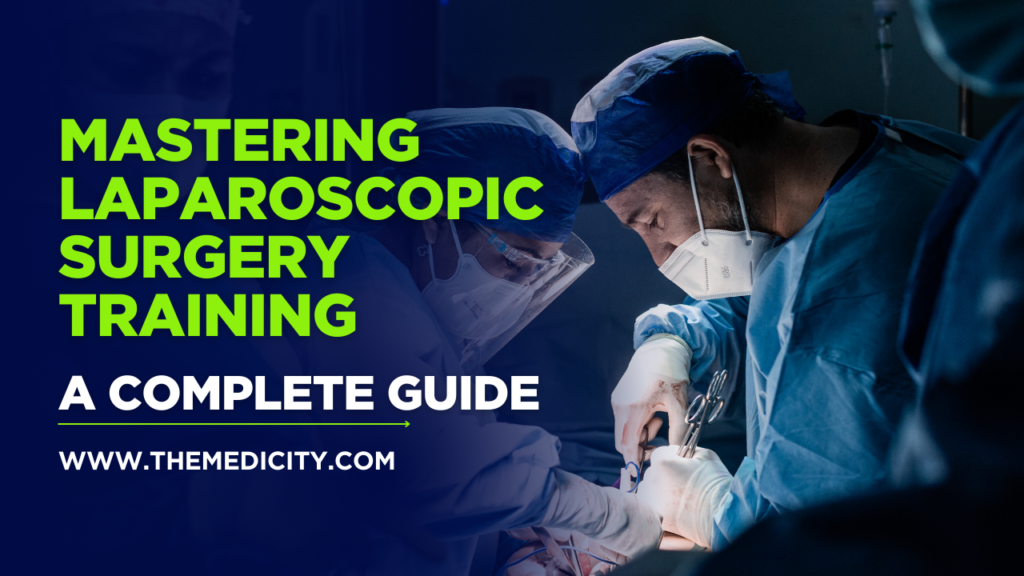- info@themedicity.com
- +91 8686-58-2020
- +91 9355-696-696
- Locations - Gurugram, India I Dubai, UAE
Laparoscopic Surgery Introduction
In the ever-evolving world of surgical innovation, laparoscopic surgery has emerged as a gold standard in minimally invasive techniques. Known for its precision, reduced patient trauma, and quicker recovery times, laparoscopy is transforming how surgeries are performed across the globe. For medical students and young surgeons, acquiring mastery in laparoscopic surgery training is no longer optional—it’s essential.
As the demand for skilled laparoscopic surgeons continues to rise, mastering these advanced techniques can significantly elevate your career prospects. From better patient outcomes to professional growth, the benefits are immense.
This comprehensive guide is designed to walk you through the essentials of laparoscopic surgery: from understanding its fundamentals and mastering key skills to choosing the right laparoscopic training institute and overcoming challenges. Whether you’re just starting or aiming for advanced training, this guide has you covered.
Understanding Laparoscopic Surgery
Laparoscopic surgery, also known as keyhole surgery, is a minimally invasive procedure that allows surgeons to operate through small incisions using a camera and specialized instruments. A laparoscope—a thin tube with a camera—projects images onto a screen, guiding the surgeon throughout the procedure.
Compared to traditional open surgery, laparoscopy offers multiple advantages:
- Smaller incisions and minimal scarring
- Less post-operative pain
- Faster recovery and shorter hospital stays
- Reduced risk of infection
For surgeons, the approach demands precision and a completely different set of technical and cognitive skills. With growing global demand, enrolling in a quality laparoscopic surgery course has become vital for surgical training and clinical excellence.
Essential Skills for Laparoscopic Surgeons
Mastering laparoscopy isn’t just about using the tools—it’s about developing the right skillset. Here are the critical abilities every laparoscopic surgeon must acquire:
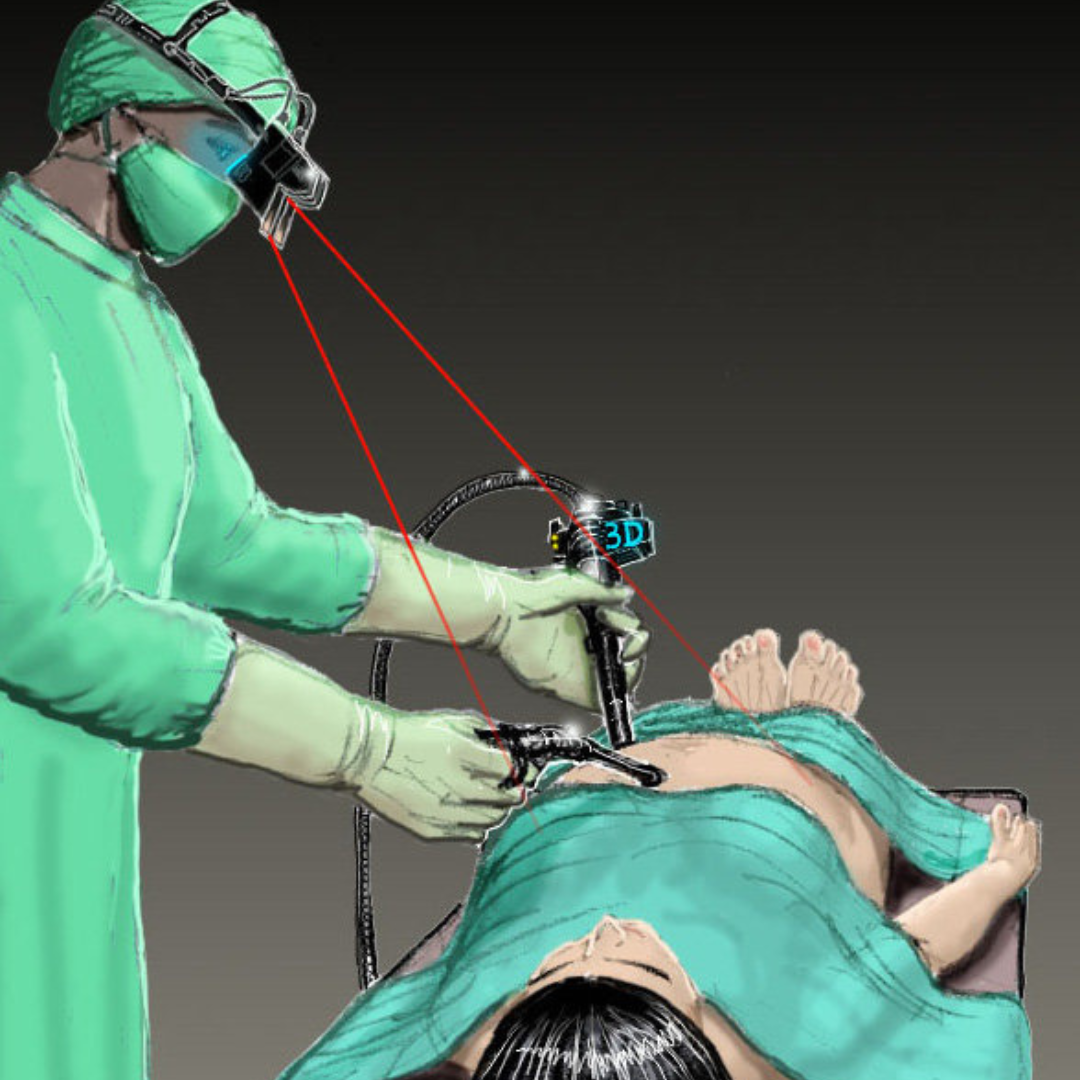
Hand-Eye Coordination
Since the surgeon operates while watching a screen, aligning hand movements with visual cues is crucial.
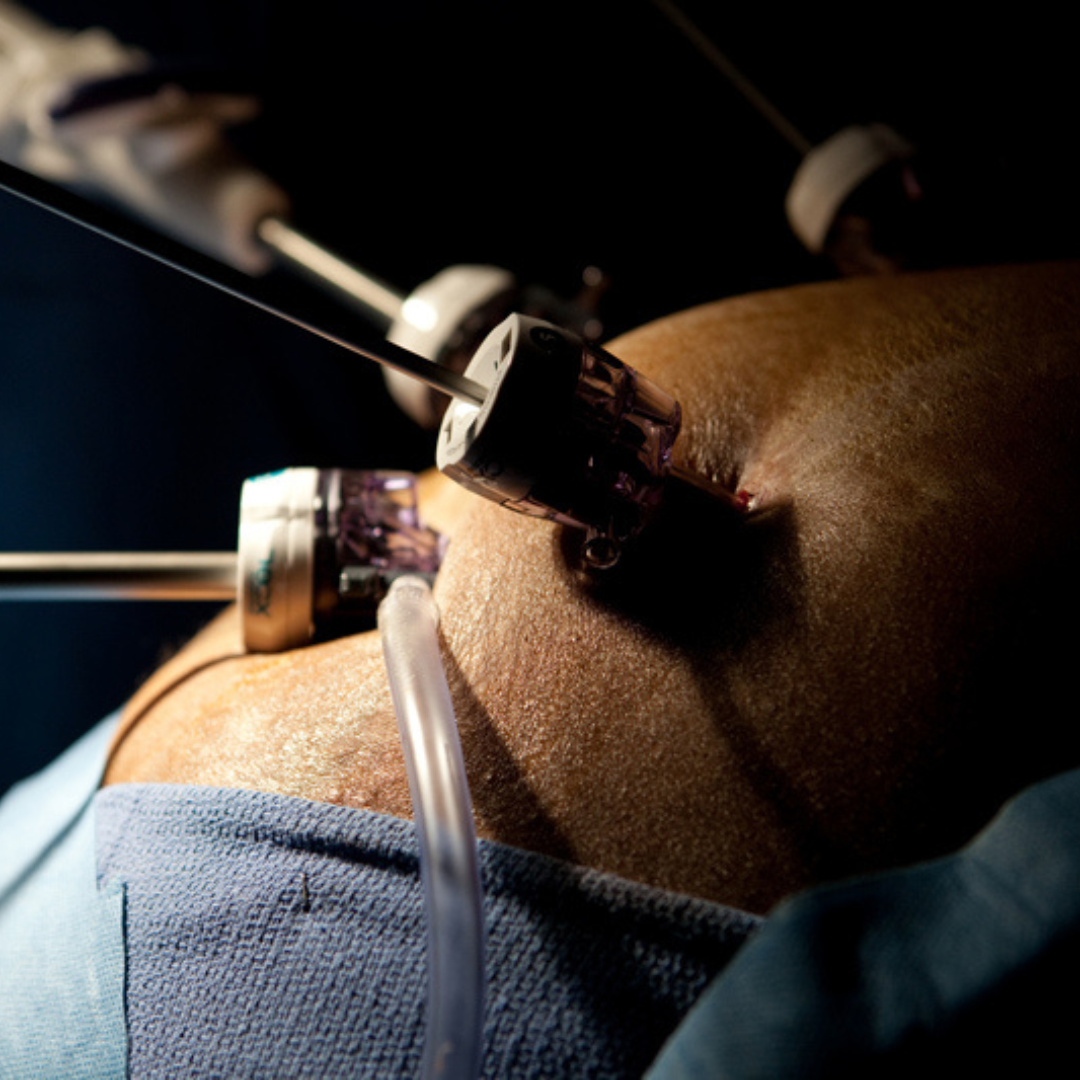
Depth Perception View
The view on the monitor challenges your ability to judge spatial relationships, requiring targeted laparoscopy training exercises.
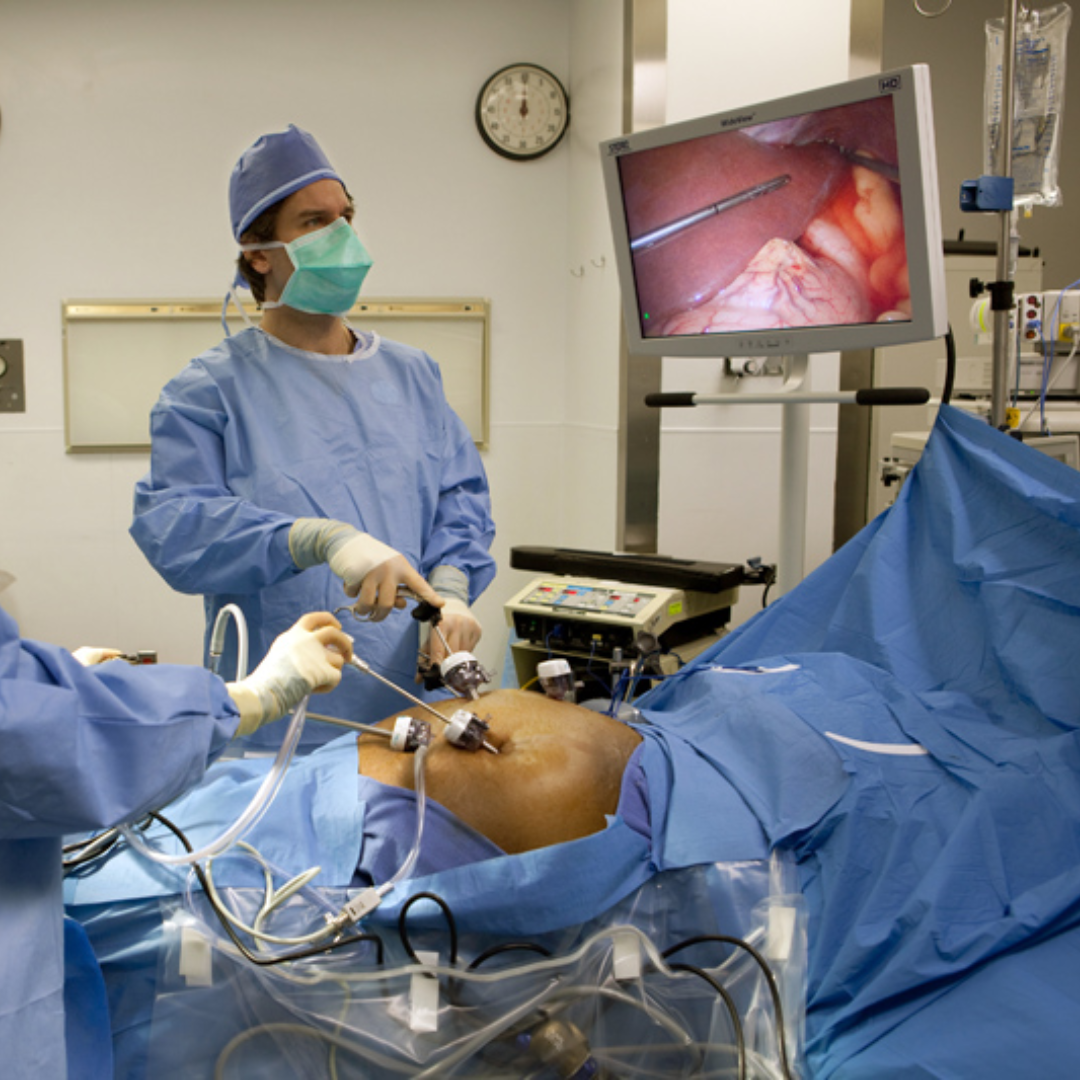
Precision and Motor Skills
You must develop refined control over instruments to make accurate movements inside tight spaces.
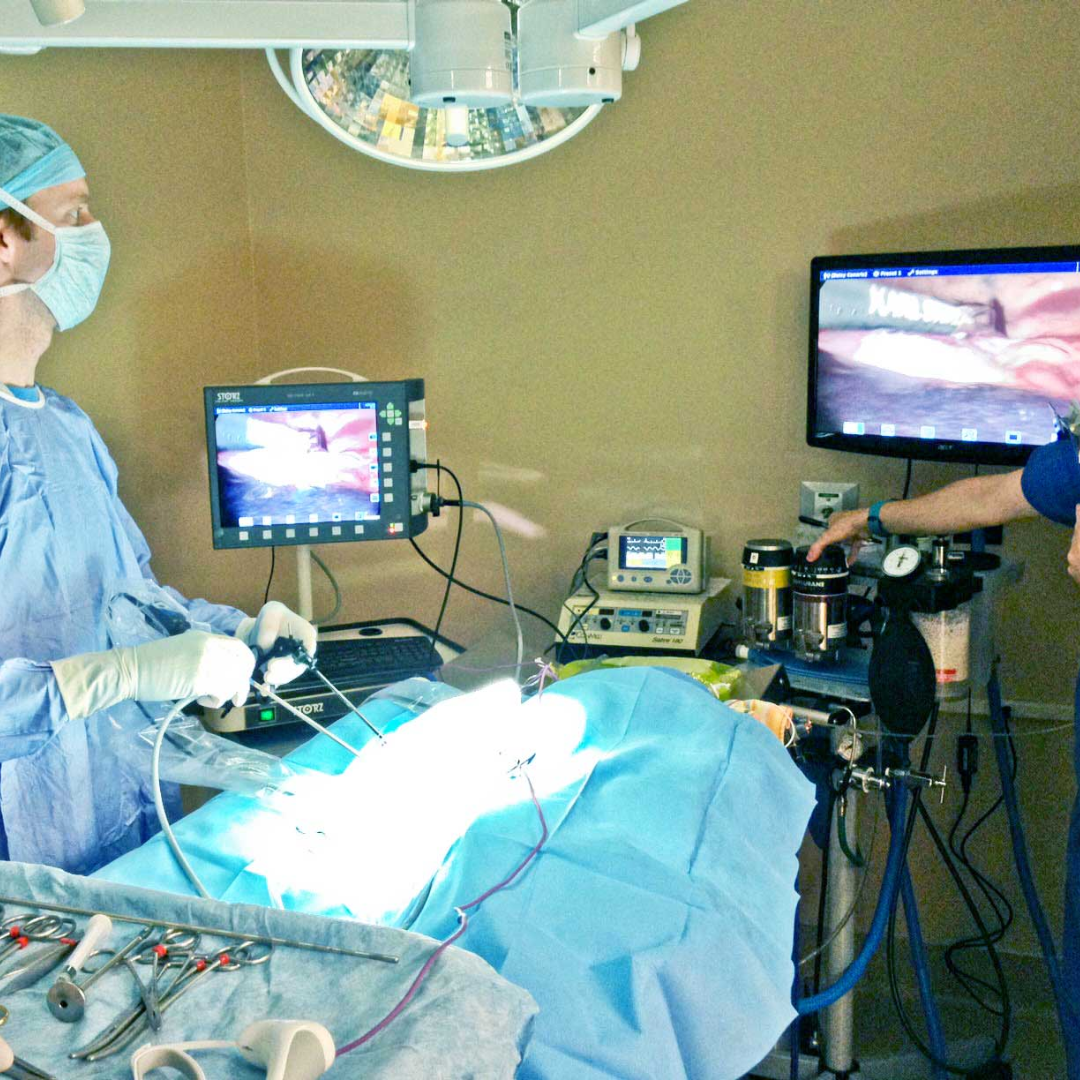
Cognitive Abilities Skills
Decision-making under pressure, quick thinking, and adapting to intraoperative changes are vital for success.
These skills form the foundation of any laparoscopic surgery fellowship in India or abroad.
The Importance of Structured Training Programs
Formal training in laparoscopic surgery ensures that students are well-equipped to perform procedures safely and efficiently. Choosing a structured, accredited laparoscopic training institute helps you build competence and confidence through:
- Simulation-Based Learning: Using virtual and physical models to practice before moving to real surgeries.
- Hands-On Workshops: Learning techniques under expert guidance.
- Certifications: Earning globally recognized credentials that enhance your professional credibility.
Without structured programs, mastering laparoscopy can be slow and risk-laden.
Stages of Laparoscopic Surgery Training
Becoming proficient in laparoscopic surgery requires step-by-step progression through various training levels:
Basic Level
- Simulation Labs: Begin with box trainers or virtual simulators to understand camera navigation and instrument control.
- Animal Models: Offer a realistic experience of tissue handling and surgical flow.
- Virtual Reality Tools: Improve reflexes and precision through gamified learning.
Intermediate Level
- Supervised Clinical Procedures: Perform surgeries under expert supervision, gradually increasing responsibility and complexity.
Advanced Level
- Independent Surgeries: Take lead roles in procedures while learning to handle complications.
- Managing Adverse Events: Develop strategies to respond quickly and safely.
Continual Education
- Workshops & Conferences
- Online and Offline Laparoscopic Training Modules
Each stage plays a crucial role in shaping a confident and competent laparoscopic surgeon.

Hands on Laparoscopic Training
Join our 14-Day Laparoscopic Training Program designed to provide intensive, hands-on experience in minimally invasive surgical techniques.
Tools and Technology in Training
Technology plays a transformative role in laparoscopic training today. Modern tools enhance both learning and performance:
- Simulators: Both physical and VR-based simulators allow safe, repeatable practice sessions.
- Robotic Systems: Introduce more control and flexibility, commonly used in complex procedures.
- Smart Tools: Devices with haptic feedback and AI-based trainers provide real-time performance feedback to enhance learning curves.
Investing in the right tools can drastically reduce the time needed to master laparoscopy and improve your surgical outcomes.
Challenges Faced During Training
Despite its advantages, laparoscopic training comes with unique challenges:
- Steep Learning Curve: Mastering depth perception, camera navigation, and two-handed coordination takes time and effort.
- Complications and Errors: Handling unexpected bleeding or equipment malfunction under pressure can be overwhelming.
- Stress and Fatigue: Prolonged procedures can cause mental and physical strain, emphasizing the need for ergonomic awareness.
Recognizing these hurdles early on will help you better prepare for your journey ahead.
Tips for Mastering Laparoscopic Skills
To become an expert in laparoscopic surgery, keep these practical tips in mind:
- Practice Consistently: Use simulators regularly to sharpen your skills.
- Mind Your Posture: Good ergonomics reduce fatigue and enhance precision.
- Seek Mentorship: Learn from experienced laparoscopic surgeons to fast-track your learning.
- Stay Updated: Join CME programs and follow journals to keep up with innovations and new techniques.
Progress in laparoscopy is about consistency, curiosity, and courage.
Laparoscopic surgery is a skill that combines precision, patience, and constant practice. At The Medicity, our structured program helps you become a safe, confident, and competent laparoscopic surgeon. With a world-class dry lab, animal tissue stations, and an advanced wet lab, you learn step-by-step — theoretically and practically — how to perform laparoscopic surgeries with skill and safety.
Keep learning, stay curious, and let each challenge make you a better surgeon. Your journey toward becoming a top laparoscopic surgeon starts today!
Frequently Asked Questions (FAQ)
How to learn laparoscopic surgery?
Enroll in a structured course like the one at The Medicity, which includes simulation, animal models, and wet lab training.
What education is required to become a laparoscopic surgeon?
MBBS followed by MS/DNB in Surgery or Gynecology, plus laparoscopic training.
What is the basic laparoscopic skills course?
Camera navigation, port placement, instrument handling, suturing, and knot tying.
What are the tasks of the laparoscopic training?
Creating pneumoperitoneum, tissue dissection, suturing, and handling intraoperative complications.
What is the salary of laparoscopic surgery?
In India, surgeons can earn anywhere between ₹15 LPA to ₹50 LPA depending on experience and specializatiIization.
Let's talk for more information




